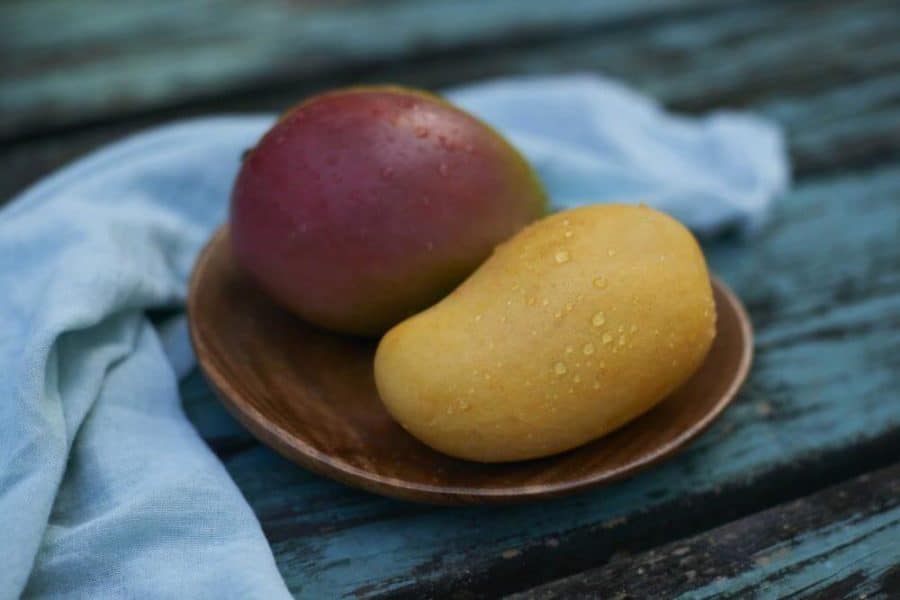Next time you suffer from constipation, you may want to consider grabbing a mango instead of reaching for a fiber supplement, suggests a new Texas A & M University pilot study published in the peer-reviewed journal Molecular Nutrition and Food Research. The researchers found that mango, which contains a combination of polyphenols and fiber, was more effective than an equivalent amount of fiber powder in relieving constipation – a chronic digestive condition that affects an estimated 20 percent of Americans.
“Our findings suggest that mango offers an advantage over fiber supplements because of the bioactive polyphenols contained in mangos that helped reduce markers of inflammation and change the make-up of the microbiome, which includes trillions of bacteria and other microbes living in our digestive track,” said corresponding author Susanne U. Mertens-Talcott, an associate professor in the department of nutrition and food science at Texas A & M University. “Fiber supplements and laxatives may aid in the treatment of constipation, but they may not fully address all symptoms, such as intestinal inflammation.”
For the four-week study, 36 adult men and women with chronic constipation were randomly divided into two groups: the mango group ate about 300 grams of mango a day (equivalent to about 2 cups or 1 mango), while the fiber group consumed the equivalent amount of fiber powder into their daily diet (1 teaspoon or 5 grams of dietary psyllium fiber supplement).
Throughout the study, the participants’ food intake was assessed by a food questionnaire to ensure that their eating habits did not change. The food intake analysis revealed that the mango and fiber groups consumed equivalent amounts of calories, carbohydrates, fiber, protein and fat.
Measures of constipation severity were taken at the beginning and end of four weeks, and both the mango and fiber groups improved over the course of the study. However, mangos were found to be more effective in reducing the symptoms of constipation in the participants than fiber alone. Mango supplementation significantly improved constipation status (stool frequency, consistency and shape) and increased short chain fatty acids levels, which indicate improvement of intestinal microbial composition. Mango consumption also helped to reduce certain biomarkers of inflammation.
The researchers conclude that more research is needed to determine the mechanism of action involved in the mango protective effect in constipation and which role mango polyphenols may play in supporting the beneficial effects of fiber.



I should add that the reported testing is not explained properly, or it was done incorrectly. We need to compare the effect when mango fruits are used to replace other fruit and vegetables in the diets of constipation sufferers. Without an equivalent substitution, no serious comparison is po0ssible.
Well, good topic and thought provoking subject to assimilate and apply to daily life. In fact I was a regular eater of mangoes for many years. MANGOES NEVER HELPED ME IN ANY FORM TO CONTROL CONSTIPATION. In fact I suffered a lot and finally diabetes type 2 cropped up at young age. Now my life is only eating GREEN GRAM, AND LOBAK VEGETABLES. GOD ONLY CAN HELP ME AS NOW 79 YEARS NO DOCTOR OR MEDICINE HELPED ME SO FAR. ONLY DAILY PRAYERS AND REQUEST THAT LIFE GOES OUT KEEPING IN MIND GOD’S NAME
Completely true, as a constipation sufferer I have grown a mango tree (Kent variety) and I use the fruit to help my digestive system to work properly. Other fruits and vegetables are less effective, but also necessary. Long live King Mango!